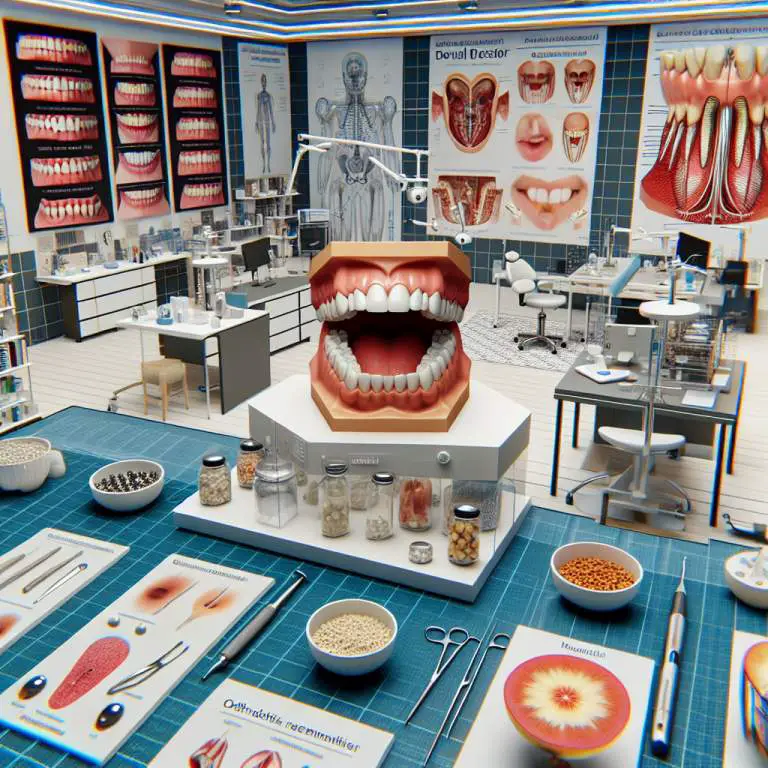Is there a connection between calcium intake and the effectiveness of mewing?
Yes, there is a connection between calcium intake and the effectiveness of mewing. Calcium is vital for bone health, including the jawbone, which is directly involved in mewing. A sufficient calcium intake supports the jawbone’s strength and density, potentially enhancing the results of mewing by providing a solid foundation for the technique. Therefore, ensuring adequate calcium in your diet can contribute to the success of mewing.

How Does Mewing Affect Jawbone Health?
Mewing is a technique that involves placing your tongue against the roof of your mouth. This position is supposed to help shape your jawline and improve overall facial structure. People who practice mewing believe it can make their jawbones stronger and more defined.
When you mew, you’re using muscles in a way they’re not usually used. This can lead to changes over time. Some say it helps with breathing and even improves sleep. But how does it really affect the health of your jawbone? That’s something many are curious about.
What Role Does Calcium Play in Bone Health?
Calcium is super important for keeping our bones strong and healthy. It’s like the building block that our bodies use to make sure our bones can hold us up and protect our organs. Without enough calcium, our bones can get weak and might break easily.
Our body also uses calcium to help our muscles move and our nerves send messages from the brain to every part of our body. So, not only does calcium keep our bones strong, but it also helps us move around and feel things!
Can Increasing Calcium Intake Improve Mewing Results?
If you’re trying hard to improve your jawline through mewing, you might wonder if eating more foods with calcium could help. Since calcium makes bones stronger, some people think getting more of it could make mewing work better or faster.
However, just eating a lot of calcium isn’t a magic solution. Your body needs the right amount of calcium, but too much isn’t good either. It’s all about balance and making sure you’re getting what you need without going overboard.
Are There Specific Nutrients That Support the Mewing Process?
Besides calcium, other nutrients are important for bone health too. Vitamin D is a big one because it helps your body absorb calcium better. Without enough vitamin D, all the calcium in the world won’t be as effective.
Magnesium and vitamin K are also stars when it comes to bone health. They work with calcium and vitamin D to keep bones strong and healthy. So, if you’re focusing on improving your jawline through mewing, paying attention to these nutrients might give you a helping hand.
| Factor | Impact on Mewing Success | Recommended Daily Intake of Calcium |
|---|---|---|
| Calcium Intake | Essential for bone health and may support the structural changes aimed with mewing by strengthening jawbone density. | Adults: 1,000 mg/day Teens: 1,300 mg/day Seniors (over 50): 1,200 mg/day |
| Vitamin D Intake | Facilitates calcium absorption which is crucial for bone health and potentially enhances mewing results. | 600 IU/day for adults up to age 70 800 IU/day for adults over 70 |
| Magnesium Intake | Supports the metabolism of calcium which can indirectly benefit the mewing process by maintaining healthy bones. | Men: 400-420 mg/day Women: 310-320 mg/day |
| Note: Consult a healthcare provider before making significant dietary or lifestyle changes. | ||
How Should One Adjust Their Diet for Optimal Mewing Outcomes?
To improve mewing outcomes, adjusting your diet is key. Focus on foods rich in vitamins and minerals that support bone health. This includes dairy products like milk and cheese, which are high in calcium. Leafy greens and almonds are also great for this.
Besides calcium, ensure you’re getting enough vitamin D and magnesium. These nutrients help your body absorb calcium better. You can find them in fatty fish, nuts, and seeds. A balanced diet will support the changes mewing aims to achieve.
What Are the Potential Risks of Over-Supplementing Calcium While Mewing?
Taking too much calcium can lead to health problems. It might cause kidney stones or even affect your heart’s rhythm. It’s important not to overdo it with supplements without talking to a doctor.
Your body needs a balance of nutrients to work right. Too much calcium can also stop your body from absorbing other important minerals like iron and zinc. Always aim for a balanced approach when adjusting your diet or taking supplements.
Is There Scientific Evidence Supporting the Connection Between Calcium and Mewing Effectiveness?
Currently, direct scientific evidence linking calcium intake with mewing effectiveness is limited. Most studies focus on general bone health rather than specific facial bone changes due to mewing practices.
However, since calcium is crucial for bone health, it’s reasonable to believe it plays a role in the process. Strong bones are vital for any orthodontic or facial structure changes. More research is needed to understand this connection fully.
Final Thoughts
Mewing involves more than just changing how you position your tongue; it’s about overall health too. A balanced diet rich in essential nutrients supports bone strength and development, which could enhance mewing outcomes.
While there’s still much to learn about the specifics of how nutrition affects mewing results, focusing on a healthy lifestyle will benefit not just your jawline but your entire body. Remember to consult healthcare professionals before making significant changes to your diet or supplement routine.







